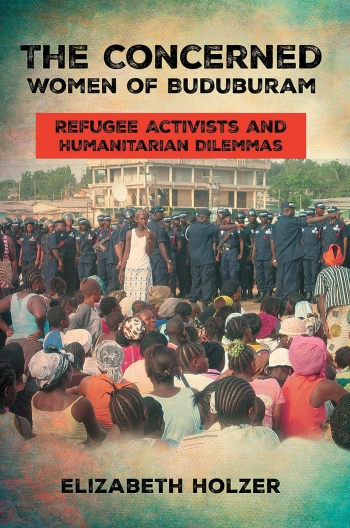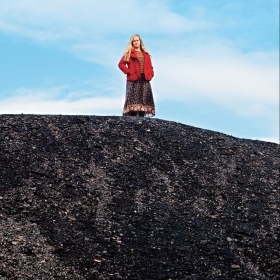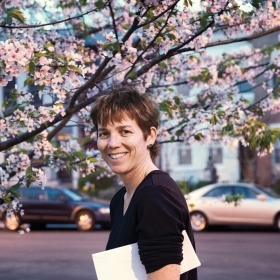In late fall, as the Syrian refugee crisis deepened, we spoke with Elizabeth Holzer ’00, assistant professor of sociology and human rights at the University of Connecticut, about insights from her research. Holzer studies how people re-engage with politics in situations of violence and instability. Her recent book looks at the political life of women in Buduburam, a longstanding refugee camp in Ghana.
What lessons can we learn from your book to inform the response to the global refugee crisis, particularly regarding Syrian refugees?
I see two main lessons. First, it’s really easy to look at a refugee crisis and see people as a threat, but this is almost inevitably false. The refugee crises that become militarized are a tiny fraction. And there are even fewer refugees themselves who choose to actually become militant. It is extremely unlikely that any Syrians would come to the United States with interest in being part of a war or terrorism.
Second, it’s important to bear in mind that refugee flows are concentrated in the region where the conflict is taking place. The vast majority of Syrian refugees are being hosted in closer countries, like Jordan.
In your book, you talk about the importance of empowering refugees to engage in political action. What are some ways you think governments can empower refugees?
The best host countries can do is start from the position that hosting refugees is a good thing, not a bad thing. Likewise, when you hear of refugees wanting to represent their community, you start from the presumption that it can be productive and their representations are legitimate.
Also, the 1951 Convention on the Rights of Refugees lays out a series of rights, and it’s important for host governments to honor those basic rights. If people have rights to get jobs, get education, and have ways to redress grievances, just like citizens, that will go a long way to making refugees feel like valid members of society.
How can people in the United States get involved?
This is now a states’ issue, since some governors have made decisions to say they will refuse to host refugees. States tend to be a lot more responsive to citizens, so now is the time to contact local legislators and either express support or urge policy changes. Also, in almost every state there are resettlement agencies that the Department of State contracts with to provide support to refugees. Now is a great time to contact local agencies and ask about how to get involved, such as by picking refugees up from the airport or stocking a new apartment.
You can find information about your state’s resettlement agencies here: goo.gl/vJIDXg.
Nice practices immigration law with a focus on asylum at McHaffey and Associates in Boston.







We ask that those who engage in Wellesley magazine's online community act with honesty, integrity, and respect. (Remember the honor code, alums?) We reserve the right to remove comments by impersonators or comments that are not civil and relevant to the subject at hand. By posting here, you are permitting Wellesley magazine to edit and republish your comment in all media. Please remember that all posts are public.